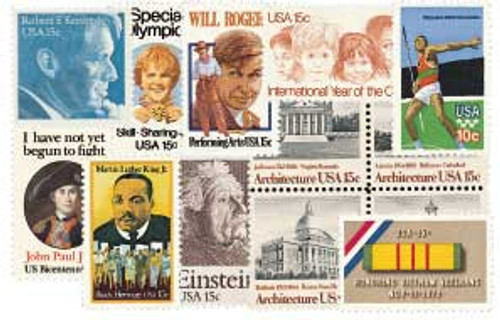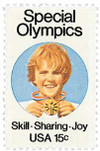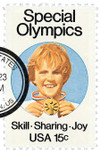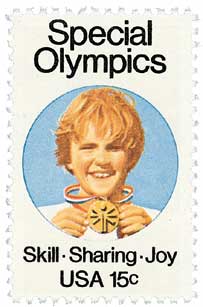
1979 15c Special Olympics
# 1788 - 1979 15c Special Olympics
$0.35 - $36.50
U.S. #1788
1979 15¢ Special Olympics
1979 15¢ Special Olympics
Issue Date: August 9, 1979
City: Brockport, New York
Quantity: 165,775,000
City: Brockport, New York
Quantity: 165,775,000
Printed By: Bureau of Engraving and Printing
Printing Method: Photogravure
Perforations: 11
Color: Multicolored
U.S. #1788 commemorates the Special Olympics. Created by the Joseph P. Kennedy, Jr., Foundation, the Special Olympics is the world's largest program of athletic competition and sports training for the mentally handicapped. Its theme, "You Can," gives people with special needs a chance to develop their skills and to grow both mentally and physically.
U.S. #1788
1979 15¢ Special Olympics
1979 15¢ Special Olympics
Issue Date: August 9, 1979
City: Brockport, New York
Quantity: 165,775,000
City: Brockport, New York
Quantity: 165,775,000
Printed By: Bureau of Engraving and Printing
Printing Method: Photogravure
Perforations: 11
Color: Multicolored
U.S. #1788 commemorates the Special Olympics. Created by the Joseph P. Kennedy, Jr., Foundation, the Special Olympics is the world's largest program of athletic competition and sports training for the mentally handicapped. Its theme, "You Can," gives people with special needs a chance to develop their skills and to grow both mentally and physically.













